Jim Pappin started the scoring with his second goal of the playoffs just 3:08 into the game when he beat Penguins goaltender Jim Rutherford with assists from Bill White and Pat Stapleton. Before the period was over, each team successfully killed off a minor penalty, and the period finished with Chicago leading 1-0 with the Black Hawks holding a 15-10 advantage in shots.
The first nine minutes of the second period passed without little to report before Ken Schinkel tied the game at 9:13 from Greg Polis and Bryan Hextall. The home fans in Pittsburgh were then delighted when Syl Apps gave the Penguins their first lead of the game at 14:10 from Jean Pronovost and Darryl Edestrand when he beat Gerry Desjardins in goal for Chicago.
Desjardins had only played six games for the Black Hawks during the regular season, as the bulk of the work was shared by Tony Esposito (48 games) and Gary Smith (28). Esposito had started the first two games, winning both while giving up just three goals, and Smith had won Game 3 by a shutout, so the start by Desjardins was rather unusual, but with Chicago up by three, they had the opportunity to get him some playing time in the postseason, his first since 1969 with the Los Angeles Kings.
Bobby Hull, from Stapleton and Chris Bordeleau, tied the game for Chicago at 16:40 before Schinkel's second goal of the period, from Hextall and Polis, had the Penguins back on top at 3-2 just 39 seconds later. With time winding down in the second period, Pittsburgh's Ron Schock extended the Penguins lead to 4-2 when he scored with just 30 seconds left in the second period with an assist from Nick Harbaruk. The desperate Penguins, looking to keep their season alive, had outshot Chicago 14-7 for the period and all five goals in the second came at even strength despite each team having a power play opportunity.
Despite giving up four goals in the second period, Desjardins remained in the nets for the Black Hawks at the start of the third. Shock took a penalty for Pittsburgh at 5:54 but Chicago could not capitalize. Desjardins and Shock then got into it at at 10:04 and each took matching minors. Bobby Hull then scored his second goal of the game from White at 11:28 to cut the Penguins lead to one. Dennis Hull then beat Rutherford from Bordeleau at 15:38 to tie the game at 4-4 and the momentum was now back with Chicago, who did not want to let Pittsburgh back into the series.
Bobby Hull then completed his second career playoff hat trick less than one minute later from Bordeleau (his third assist in under 20 minutes) and Wayne Maki at 16:22 to regain the lead for the Black Hawks as they looked to finish off the Penguins and avoid having to play any additional games.
Chicago just needed to hold off the Penguins for the remaining 3:38, but Pittsburgh was not finished yet, as Bob Leiter then tied the game yet again at 5-5 at 17:52 from Al McDonough and Tim Horton to give the Pittsburgh fans hope their season was not over.
The Penguins again outshot the Black Hawks in the third period, by the narrow margin of 10-9, but regulation concluded with the game still tied at 5-5.
The ice was resurfaced, but before the 12,415 in attendance could settle into their seats, Chicago's Pit Martin set a record for the quickest overtime goal in league history when he beat Rutherford for the game and series winning goal from Pappin and Dennis Hull just 12 seconds into the extra period, eliminating the Penguins in four straight. While Desjardins got the win for Chicago, it would be his only appearance of the playoffs.
Today's featured jersey is a 1971-92 Chicago Black Hawks Pit Martin jersey. Martin was the second leading scorer on the Black Hawks that season with 75 points behind Bobby Hull's 93. Martin's 24 goals made him one of six Black Hawks with 20 or more, along with Bobby Hull (50), Dennis Hull (30), Pappin (27), Stan Mikita (26), and Cliff Koroll (22).
Martin would eventually play over 1,100 career games over 17 seasons, 11 of those with Chicago, He would score 324 goals and 809 points, which included three 30 goals seasons. He would appear in four consecutive NHL All-Star Games from 1971 to 1974 and was named the winner of the Masterton Trophy in 1970.
The Black Hawks first adopted the precursor to today's featured jersey back in 1955 before it went through evolutionary changes to the crest, neck line, striping and shoulder logos over the next ten years before arriving at today's featured configuration in 1965. One of hockey's most beloved and classic styles, it essentially remains unchanged today, albeit with the expected detail changes along the way, such as two color numbers, the addition of names on the back and the transition to the new Reebok Edge jerseys in 2007.
Today's video is Dennis Hull talking about playing on the MPH Line, which was comprised of Dennis, Jim Pappin and Pit Martin.

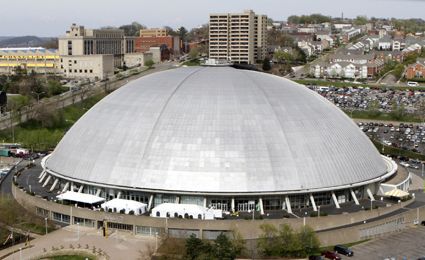
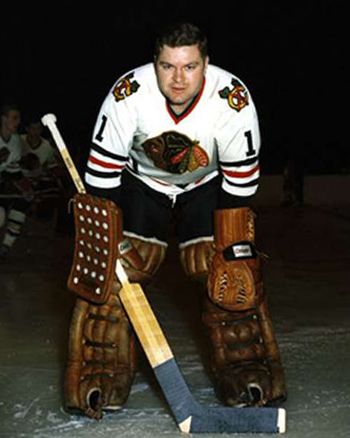
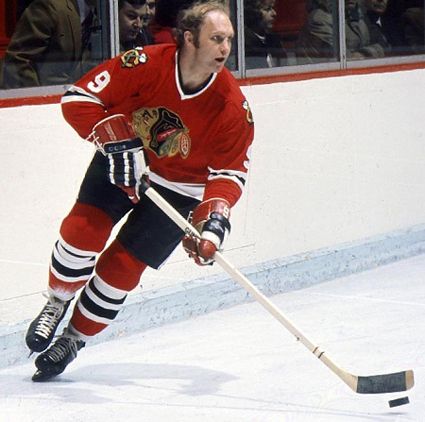
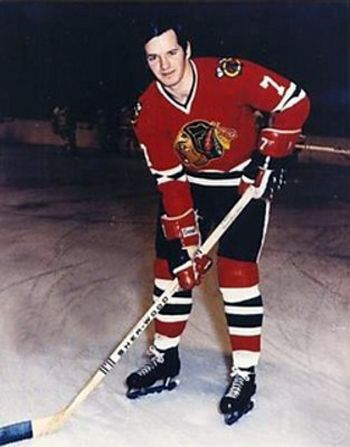
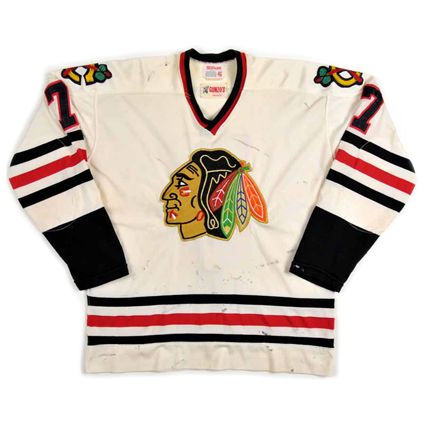
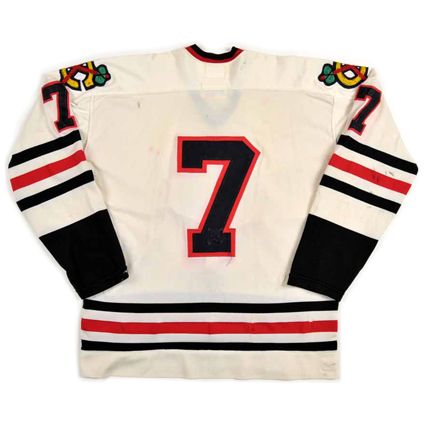










No comments:
Post a Comment
We welcome and encourage genuine comments and corrections from our readers. Please no spam. It will not be approved and never seen.